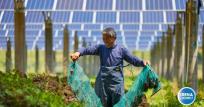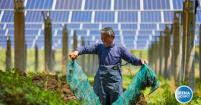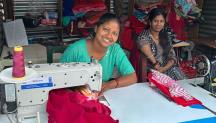

From Council to COP27: IRENA Aims to Place Agri-Food, Health and Renewables High on Global Agenda
Newsletter
Food systems use nearly 30 per cent of the world's energy, illustrating just how closely related the energy system is to the food system. Renewable energy can play a critical role in meeting the needs for powering agri-food systems in both developed and developing countries. Renewables can also help bridge the energy access deficit faced by healthcare facilities. Over 1 billion people are being serviced by healthcare institutions that lack electricity.
“If we are to meet the goals of the Paris Agreement, it is crucial to take a collaborative approach to energy transition, health, and the food system,” said speaking at the IRENA Director-General Francesco La Camera at the Agency’s 24th Council meeting in Abu Dhabi.
Addressing a programmatic discussion titled “Integrating Renewable Energy into Agri-food and Health Value Chains,” the Director-General called for strong political resolve to spearhead this change on a global scale. “The current global food and energy crises, COVID 19, and the ongoing climate emergency have demonstrated how critical it is to prioritise the climate-energy-food-health nexus at the top of the political and international agenda,” he added.
“With major socio-economic advantages, renewable energy options are well-positioned to address the varied energy needs of the agriculture sector in a distributed, economical, and environmentally sustainable way,” said Rabia Ferroukhi, Director Knowledge, Policy and Finance, IRENA, emphasising the need for an enabling ecosystem to scale up the adoption of renewable energy in all sectors of the economy, including water, healthcare, and agriculture.
“IRENA has been working closely with partners to analyse the experience of countries and programmes in creating the right enabling conditions. The knowledge work of IRENA and action-oriented partnerships are delivering solutions that strengthen the enabling ecosystem at the regional and national-level for nexus projects and facilitate investments,” she added.
Shedding light on some of IRENA’s ongoing regional and country-level engagements, Gurbuz Gonul, Director of Country Engagement and Partnerships, IRENA, said the Agency is supporting Members through market assessments geared at scaling up provision of efficient and affordable decentralised renewable energy solutions to healthcare and agri-food sectors. He also presented case studies of IRENA’s pilot projects in Burkina Faso and the Hindu Kush Himalaya.
“The interventions by the members have amplified our understanding of IRENA's contribution to speeding the adoption of decentralised renewable energy applications,” said Gauri Singh, Deputy Director-General, IRENA, in her closing remarks the Council event.
On 16 November, at COP27 in the IRENA pavilion in Sharm El Sheikh in Egypt, IRENA, the Food and Agricultural Organization and International Fund for Agricultural Food Development will host a panel discussion titled, “Renewable Energy for Agri-food Systems: Scaling Investments towards Climate Action and 2030 Agenda” (IRENA at COP27). The event discusses how cross-sector cooperation can mobilise capital that can be injected into the energy infrastructure and strengthen agri-food chains.




